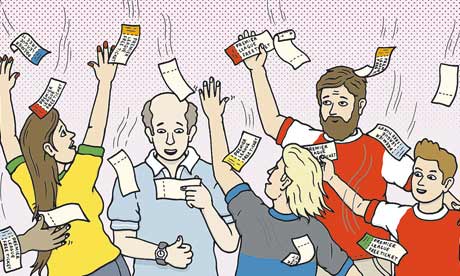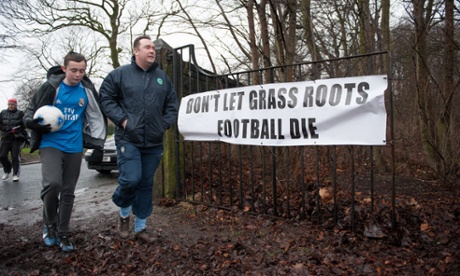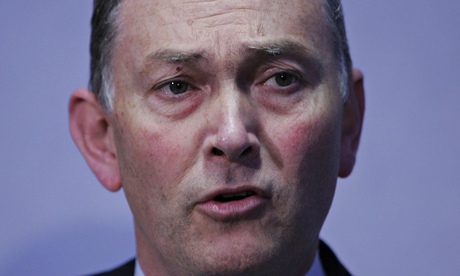Imagine living in a parallel universe. One where Premier League clubs looked at the £5.5bn global TV rights deal for 2013–16 and said: you know what, times are tough for the average supporter – let's make do with £3.4bn, broadly the amount we made from TV in 2010-13, and use the rest to cut ticket prices. Take a guess at how much the price of every ticket would fall?
Keep going. And don't stop until you reach £51.30.
Yes, in this fantasy land, ticket prices would be reduced by £51.30 for every Premier League match for the next three years. (£51.30 is 2.1bn divided by 40,932,408 – the 2012-13 aggregate attendance of 13,644,136 multiplied by three).
Given that the highest ticket price at 10 of the 20 Premier League clubs last season was £50 or less, it puts what could be done into sharp - if crude - focus. Most fans would get in free. And proposals such as the Football Supporters' Federation's Twenty's Plenty campaign, which aims to cap ticket prices at £20 for away fans, would be a drop in the ocean.
Yet we know where much of the money will end up. In players' pockets. As the football finance review by Deloitte for 2011-12 reported last week, the revenue-to-wages ratio average in the Premier League is 70%, compared to 51% in the Bundesliga.
You can't blame players for taking the cash, but imagine the reaction if a single big-name footballer showed the wage restraint the rest of the nation is being asked to?
Meanwhile, fans still lap up the product. Remember the protests of Manchester City fans after being asked to pay £62 at the Emirates in January, and the militant talk that followed? Even in the teeth of the bitterest recession in recent memory and a midwinter that lasted until April, average attendances went up 3.6% in 2012-13 to 35,906 – the second highest in Premier League history.
Of course, supporters' issues are aired. It's just that clubs often ignore them. It perhaps doesn't help that, as my colleague Barry Glendenning points out, many fans' protests consist of marching from the pub they were going to be in anyway to the match they were going to attend anyway.
Most, but not all. On Wednesday 19 June, the day the 2013-14 season fixtures are published, a group of supporters will protest outside the headquarters of the Premier League and Football League. Their grievances are lengthy, but the spiralling cost of attending matches and the refusal to address fans' concerns top the list.
As James McKenna of Spirit of Shankly, the Liverpool supporters' group who have organised the demonstration, explains: "Clubs know they have got people. But at a time when football is making more money than ever, we want them to give something back."
McKenna claims that Spirit of Shankly has had meetings attended by Manchester United, Everton and Tranmere fans who feel the same way. Supporters from Arsenal and Spurs have also pledged to join them. "Change isn't going to happen overnight," he admits, "but we have to try."
You might argue that when it comes to complaining about ticket prices, the horse has not only bolted but been put out to stud, died of old age and ended up in a beefburger. You might also smell the pungent whiff of a publicity stunt. Arguably the target is a little scattergun, too: the Premier League does not set ticket prices, clubs do.
Even so, it is no bad thing to remind the game's powers of a fundamental truth: that while fans need their football clubs – often to an unhealthy, addictive degree – clubs need fans, too. It is a symbiotic relationship, but hardly a fair one. It is clearly more beneficial to one party than the other. Sometimes it strays near to parasitism.
Without supporters putting bums on seats the product loses some of its lustre. The atmosphere generated by fans stirring the pot would decline further. Overseas TV rights might not be so lucrative. And many clubs' balance sheets, which are unhealthy even with all the money sloshing around, would be on life support. Yet how many Premier League clubs have supporters on their boards? Or regularly address the concerns of fans? Too often there is the illusion of participation.
Dave Boyle, the former chief executive of Supporters' Direct, equates it to a parent allowing a child to pick between a banana or an apple for pudding after a day of parentally dictated activities.
A demonstration on a Wednesday afternoon in mid-June won't have thousands marching on Gloucester Place. It inevitably leaves fans open to the charge of 'Is this all you have got'? It's hardly Borussia Dortmund fans boycotting their derby at Schalke en masse to protest at a rise in prices, as they did in 2010, either.
Still, look at the small victories of recent days: Everton apologising for not consulting their fans after infantilising their crest when 22,500 complained, Bolton's rapid U-turn away from a sponsorship deal with the pay-day loan company QuickQuid. It shows what can be done.
The Premier League says it will invite a group of next week's demonstrators to come into their offices "should they so wish" and pass on their comments to clubs.
Let's hope those clubs listen rather than pay lip-service; and supporters become more emboldened too.











